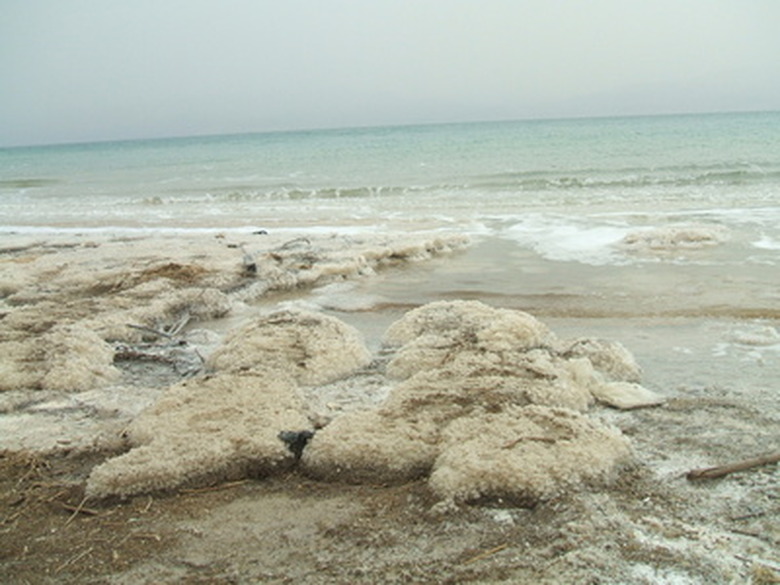How Is Rock Salt Formed?
Most people who live in snowy climates know about rock salt from winter driving and the clearing of driveways and sidewalks. Rock salt is a white, slightly-opaque crystal that is spread over walking and driving areas to melt snow and prevent slipping.
Halite
Halite
The scientific name for rock salt is halite, and its chemical formula is NaCl or sodium chlorine. Table salt is also made from rock salt, which is a naturally occurring mineral often found in large deposits near the surface of the earth.
Formation
Formation
Rock salt is found in old ocean sea beds that have long ago dried up. The compound originates from a body of sea water that undergoes an intense evaporation process, leaving behind large rings of sea salt. Then through the long process of geologic aging, the salt layers are covered with marine sediments.
Salt Domes
Salt Domes
Since halite is a very light mineral, it often "punches up" through heavier sedimentary rocks to create salt domes near the surface of the earth. These domes are important mining sources for rock salt. They are also indicators of natural gas and crude oil, for these naturally occurring compounds sometimes get trapped underneath the salt domes.
Cite This Article
MLA
Bauholz, Henri. "How Is Rock Salt Formed?" sciencing.com, https://www.sciencing.com/rock-salt-formed-7192004/. 24 April 2017.
APA
Bauholz, Henri. (2017, April 24). How Is Rock Salt Formed?. sciencing.com. Retrieved from https://www.sciencing.com/rock-salt-formed-7192004/
Chicago
Bauholz, Henri. How Is Rock Salt Formed? last modified March 24, 2022. https://www.sciencing.com/rock-salt-formed-7192004/
